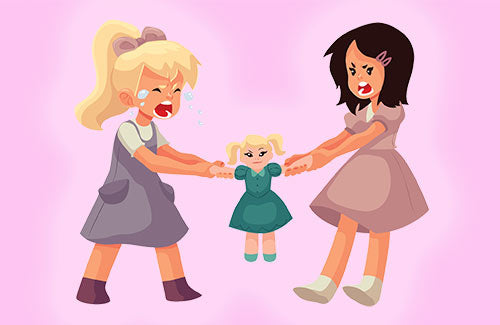Are arguments inevitable?
Is conflict a sign of a strong relationship?
As a teenage girl, dealing with conflicts in your relationships can be tough, whether it’s with friends or family. However, learning how to navigate these conflicts can actually make your relationships stronger, and help you grow emotionally. Let’s dive into what conflicts are, why they happen, and some tips on managing them.

Understanding Conflicts
Conflicts are a natural part of any relationship. They occur when there are differences in opinions, values, or needs. It’s important to remember that having conflicts doesn’t mean a relationship is unhealthy. In fact, resolving conflicts can lead to better understanding and closer bonds.
Why Conflicts Happen
- Differences in Perspectives: Everyone sees the world differently, and these varying perspectives can sometimes clash.
- Miscommunication: Misunderstandings often lead to conflicts, especially if messages are not clear or are misinterpreted.
- Unmet Needs: When individual needs are not met, it can cause frustration and lead to disputes.
- Stress and External Factors: External pressures, such as school stress or family issues, can contribute to conflicts in your relationships.
Tips for Navigating Conflicts
1. Stay Calm and Collected
- When a conflict arises, take a moment to breathe and calm down. Reacting in anger can escalate the situation. If you need to walk away for a moment, do so, but let the other person know calmly “I want to fix this problem, but I’m going to need to think through it first, so i will come back to you.” That way they know you’re not just storming away and you can both approach the conflict with a clear mind.
2. Listen Actively
- Give the other person a chance to express their feelings and viewpoints without interrupting. Active listening shows that you respect their perspective and are willing to understand their side of the story. For extra bonus points, reapeat what they they have said back to them; “So just so I’m clear, you are saying that you are unhappy because….”
3. Express Yourself Clearly
- Use “I” statements to express your feelings without blaming or accusing. For example, say “I feel upset when…” instead of “You always…” This just promots the other person to become defensive.
4. Find Common Ground
- Look for areas where you both agree and build on that. Finding common ground can help you both feel understood and create a foundation for resolving the conflict. Remember, you want to solve the issue together.
5. Be Open to Compromise
- Be willing to find a middle ground where both parties can feel satisfied with the outcome. Compromise is key to resolving many conflicts. Its not a case of one person winning and the other losing, its a case of both people being able to build or rebuild the relationship.
6. Take Responsibility
- Acknowledge your role in the conflict. Taking responsibility for your actions can show maturity and a willingness to resolve the issue. For example “I know I reacted badly and said some things I didn’t mean, and I’m sorry for that, I was acting from frustration.”
7. Seek Solutions Together
- Work together to come up with a solution that addresses both parties’ needs. This collaborative approach can strengthen your relationship.
8. Give It Time
- Sometimes, resolving a conflict takes time. Be patient and give each other space if needed. It’s okay to revisit the conversation later when emotions have settled.
Conflict with Friends
Friendship conflicts can be particularly challenging because friends are an important part of your support system. Nobody wants to break up with their bestie. Remember, it’s normal to have disagreements. The key is to address them constructively:
- Schedule a Talk: Find a good time to talk when both of you are calm.
- Focus on the Issue: Discuss the specific issue at hand without bringing up past conflicts.
- Reaffirm the Friendship: Let your friend know that despite the conflict, you value the friendship and want to resolve the issue.
Conflict with Family
Conflicts with family members can feel more intense due to close living quarters and emotional ties. Here are some tips to handle family conflicts:
- Choose the Right Time and Place: Find a private and quiet time to talk without distractions.
- Respect Their Viewpoint: Even if you disagree, show respect for your family member’s perspective.
- Set Boundaries: If the conflict is ongoing, it might be helpful to set boundaries to protect your emotional well-being. Not sure where to start with boundaries? Read our guide here.
Navigating conflicts in your relationships is a crucial skill that will benefit you throughout your life. By staying calm, listening actively, and working together to find solutions, you can resolve conflicts in a healthy and constructive way.
Remember, conflicts are a normal part of relationships, and learning how to manage them effectively will help you build stronger, more resilient connections with friends and family.



